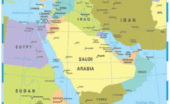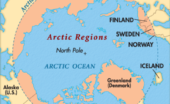Molly Minturn - My family is heartbroken to share that my father died in surgery on Monday, Feb. 10. It…
Wednesday Night #1641
Written by Diana Thebaud Nicholson // August 14, 2013 // Wednesday Nights // Comments Off on Wednesday Night #1641
The fallout from Babel, uninterrupted since Biblical times, with various interpretations of the will of the Deity duplicating the multiple tongues bestowed on humans, appears to have been a mixed blessing. Differences in skin tone, religion, physiognomy, as well as other irrelevant human attributes, are used by those, not always superior, humans as a means to assume leadership and power.
Mali
A glimmer of hope, so rare in recent world news appears to have finally appeared in Mali, where following two rounds of presidential elections, Ibraham Boubacar Keïta (known by all as IBK) was elected President with a solid majority. More significantly, defeated presidential candidate, Soumaïla Cissé, graciously accepted the results and personally congratulated the new President. This is viewed as a positive change for that chronically troubled country. The rebel leadership has promised to cut off all relationships with the Islamists and will accept the leadership of the northern part of the country. It is hoped that this marks the end of a painful conflict in which ancient monuments have been destroyed, particularly in Timbuktu, largley by the Islamists invited to join the rebels, who believed that those objects were in conflict with their Muslim beliefs. Fortunately, many manuscripts had previously been secreted away prior to their arrival.
The wild card remains the length of time the army will take to reform.
Nuclear energy
Although Hiroshima and Nagasaki have been rebuilt and are thriving, the collective memory of the instantaneous obliteration of two thriving cities, each by a single nuclear device, has deprived the world of the most promising solution to the planet`s increasing thirst for energy. Although Nagasaki has been phoenix-like reborn and is thriving, until the fallout of the technological revolution is resolved, the twin problems of unemployment and thirst for energy will have to be addressed. During the next five years, the cost of electricity is expected to rise at a rate of five to ten percent per year. Wind and solar power are capricious, the main purpose of wind power being a substitute where hydro-electric power is unavailable and/or during dry periods when hydro is unavailable.
Social media
Just a little over a decade into this century, those born in the earlier part of the twentieth century may reflect on the transition from the virtual to the real world through television and the Internet. The gradual decline of the dailies from several editions per day to one with declining print circulation stands as a bellwether for that transition.
The narrowing of the differences in access to education and life role between the sexes bears witness to that evolution. Whereas previous generations were more focused on survival, younger people, more fussy in finding a partner, see the Internet as an additional, wider source in finding a mate. Imperceptibly, the small village has evolved into the planet.
Quotes of the Evening
-The young are bright but very self-centered & not prepared to give up anything.
– Geography played a great part in previous generations.
– Nothing is stable. Everything and everyone is mobile.
– The driving force behind Al Qaeda is fear of feminism.
– L`homme rose – house husband is a rising movement in Québec.
P R O L O G U E
We highly recommend the op-ed in The Globe & Mail by Brett House Some thoughts on how Canada can help break global log jams on sovereign bankruptcy, the crisis in Europe, development finance and climate change. It is an ambitious list. We look forward to Brett’s further thoughts on solutions to the rest of the world’s problems.
Of particular interest to us is his recognition that “Canada has started to break the logjam in our own appointments process by filling our two empty chairs on the International Joint Commission, whose management of the Great Lakes waters directly affects nearly half of all Canadians.”
Water will continue to be a predominant issue in consideration of so many questions whether national (think fracking and tar sands development) or geopolitical. As recently pointed out in Brahma Chellaney’s The Battle for Water “Transnational water resources have become an especially active source of competition and conflict, triggering a dam-building race and prompting growing calls for the United Nations to recognize water as a key security concern.” In Africa there is an outcry against the resurgence of big hydro projects The World Bank is bringing back big, bad dams ; water management is a source of irritation in Israel/Palestine relations; the Asian development Bank reports that Pakistan’s New Big Threat Isn’t Terrorism—It’s Water; and China is facing a water crisis with “profound implications” according to Elizabeth Economy, Asia Director of the Council on Foreign Relations. And what of Canada? A recent report from The Fraser Institute says there is more than enough for everyone, whereas the Council of Canadians disputes the finding, reminding Canadians that there is a big difference between total water available and renewable freshwater. And let’s not forget the water depletion owing to tar sands extraction processes.
Politics in Canada
August is traditionally a quiet time for political reporting. MPs and MLAs are supposed to be pressing flesh at barbecues and shoring up their local support. However, the release of the RCMP report on Pamela Wallin’s expenses and on-going investigation of Mike Duffy are keeping the pot stirred. Then there’s the looming fight over Bob Rae’s Toronto Centre seat (Linda McQuaig, Chrystia Freeland et al.) and the prospect of a real battle over Denis Coderre’s Bourassa fiefdom (Liberals, NDP ready to grapple for federal riding in Montreal – once the byelection is called).
Around the world
The second round of the presidential election in Mali has been won by Ibrahim Boubacar Keita, whom Reuters delicately describes as “an ex-prime minister with a reputation for firmness”.
Israel continues to astound and confound as it announces yet another settlement expansion on the eve of the resumed peace talks. The Christian Science Monitor offers a balanced view of the process in The Israeli-Palestinian ‘peace process’ and US befuddlement while one has to be reminded that the Onion’s headline, Israel Builds New Settlement To Host Palestinian Peace Talks, is satirical. Poor John Kerry has his work cut out for him.
Iraq, Syria, Egypt, Afghanistan – there seems nothing original to say; the awfulness and/or impasse continue.
Eastern Europe while not evincing the turmoil of the Middle East is cause for concern, as The Guardian points out in Eastern European autocrats pose new test for democracy — From Hungary’s Orbán and Czech Republic’s Zeman to Erdoğan in Turkey, a new breed of democratic strongman is emerging
And what of Russia? Despite the international outcry, it appears improbable that Mr. Putin will back away from the anti-gay law which is apparently quite popular in the country. The fact that the IOC has asked for ‘clarifications’ boggles the mind – don’t expect Rogge and Co. to take any important action. Wouldn’t it be interesting if the G20 were to refuse to hold the September meeting in St Petersburg? But don’t hold your breath.
Medical matters
The changing face of McGill medical students raises a thorny issue: “A growing list of anglophone students rejected from medicine at McGill — many with GPAs ranging from 3.95 to 4.0 who didn’t even get interviews — are wondering if they are too English, too urban and too affluent to get one of the 185 or so highly coveted spots in the program. McGill officials insist the program’s push for diversity — aiming to ensure the school recruits students from a broad spectrum, including those from visible minorities, rural areas and lower socioeconomic groups — just puts the university at the forefront of a growing trend in medical education, and that there are no quotas. However, at least one person involved with the admissions committee believes diversity has become the prime value of the medical school and that it is having a “very destructive” effect.”
Should diversity trump qualifications? We would also ask how any admissions committee decides who will be a valuable practitioner, not simply a good student? Is there a veiled assumption that doctors from visible minorities can better treat patients in their communities?
A recent article in Slate The Absolute Insanity of Making It Difficult for Foreign Doctors to Practice in the U.S. makes a number of points that we find equally applicable to Canadian immigration policy – or perhaps, more accurately, the practices of the professional association.
“Citizens of the United States have a voracious appetite for health care services. The cost structure of the American health care industry is systematically higher than the structure in any other country. Population aging is set to increase the demand for health care services. And as a result of the Affordable Care Act, we’re attempting to expand access to health care to millions of people locked out of the system right now. Under the circumstances it’s natural that many foreign-born medical professionals would be interested in moving to the United States, where payment rates and incomes for doctors are higher, and it’s natural to think the United States would welcome these people with open arms.
Except that as Catherine Rampell writes in the New York Times we don’t actually welcome them at all.”
There is, however, the moral dilemma– where is the line drawn between offering opportunities to promising students and capable practitioners from developing countries and enticing them to not only study, but permanently leave their own countries which need their services ever more desperately?
On a practical note, for those who were away at the time of the announcement: Queen Elizabeth Health Centre gets a reprieve from MUHC cuts
Agreement allows facility in N.D.G. to continue operating … “The GMS designation pays for nursing and administration but the Queen Elizabeth Health Centre has now been recognized by Collège des médecins as an official training facility, and the MUHC is also maintaining a presence here,” [Dr. Mark] Roper said.
Great opportunity for someone who is looking for a place to live in Montreal for the 2013-2014 academic year, search no further than Maison Jeanne Sauvé! The Sauvé Foundation is seeking to rent out 10 of its rooms for the 2013-14 academic year. It’s a wonderful house, extremely convenient location on Dr. Penfield and the accommodations are most comfortable. More information
Reminders:
Nigel Penney’s Westmount Science Camp is holding its closing Open House this Friday, the 16th, at Victoria Hall from 9am to 4pm
Two items for your September agenda:
September 16, the Canadian Internet Forum National Event and CIRA’s Annual General Meeting (AGM) – not sure how you feel about a keynote speaker who is advertised as a Digital Marketing evangelist, but some of the discussion may be interesting.
Save the date for half-day conference on Canada-Asia Trade
On Tuesday, September 24, 2013, at the Omni Hotel in Montreal, the Montreal branch of the Canadian International Council and the Asia Pacific Foundation of Canada are coming together for a bilingual half-day conference with high-profile speakers from across Canada on trade with Asia. This important event will bring together businesspeople, academics, members of civil society and government in an informal but thoughtful environment to discuss the main issues of the day in a panel and question and answer format.
Did you know that Canada is currently involved in trade negotiations with some 60 countries? One of the qquestions that will surely be addressed is whether our government has the capacity to carry on so many complex negotiations simultaneously.
There are also likely to be questions regarding the delay in the execution of the key Canada-South Korea, Canada-Japan and Canada-India agreements; and, of course, conjecture regarding the possibility that Canada will sign an FTA with China.



